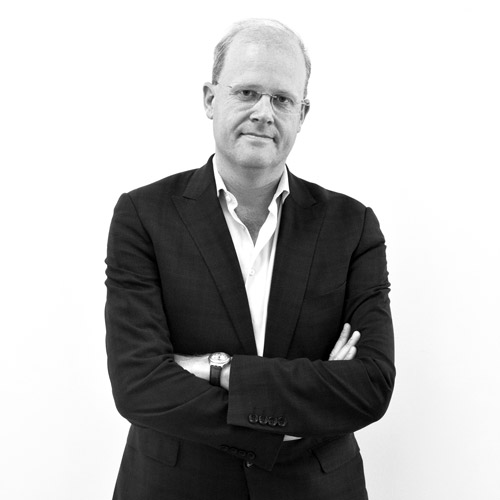Over the course of his career, Christian Bauwens has lived on four continents while working in automotive, energy, and technology industries. In addition, he can include that he speaks five languages on his résumé. This makes him a near perfect fit for California-based Flex, a leading sketch-to-scale solutions company with 200,000 employees in thirty countries that provides innovative design, engineering, manufacturing, real-time supply chain insight, and logistics services to companies of all sizes in various industries and end-markets.

As senior vice president and treasurer, Bauwens views his role as being uniquely suited to supporting the company’s business operations. That’s because his department touches nearly every operational function and helps manage a broad range of risks, whether through insurance contracts, negotiating the treasury aspects of new customer contracts, supporting funding of acquisitions, or defining customer credit limits.
“If not handled properly, corporate staffs can become too isolated. But we have numerous opportunities to work as partners with the business by offering direct support and solutions company wide,” Bauwens says. “Combining that with our own discrete areas of knowledge and decisions related to bank relationship management provides a lot of professional satisfaction.”
Shortly after joining Flex, Bauwens saw an opportunity to improve the effectiveness of the company’s regional treasury offices (which included Singapore, Vienna, and Shenzhen, China). He believed that centralizing the department’s structure would improve efficiency and facilitate strategic changes. He also believed that larger, more centralized offices could better support comprehensive operational functions and professional development and career opportunities, which would result in improved staff retention.
His solution was to move the treasury’s non-Chinese global foreign exchange business to the head office in California. Bauwens also consolidated all corporate finance and cash management activities in Asia to Shenzhen. “Many treasury functions are extremely technical, so getting the right expertise aligned in the right configuration directly affects P&L [profit and loss statement]. Centralizing our operations put us in a stronger position to make dynamic strategic changes that positively impact the business,” he explains.
Optimizing International Teams
Part of the success of this centralization initiative was Bauwens’s understanding of the many cultures in which Flex does business and that make up its staff. His skills in this area have been honed through his previous experiences at General Motors and Nissan. Nissan, for example, a Japanese company with France’s Renault as the main shareholder, has leveraged its internal strengths resulting in product management, engineering, and manufacturing being largely driven by Japanese methods, and Americans and Europeans playing a significant role in sales and corporate functions.
To mitigate potential cultural challenges in his business activities, Bauwens relies on his language skills, interests in history and geography, and understanding of local politics to be more effective. When working for General Motors in Argentina, all of these elements were critical in helping to build stronger personal relationships with government officials while negotiating a loan to support local operations. “Being able to communicate without an interpreter and showing that you truly understand local customs and politics immediately creates a more direct connection and an entirely different kind of working balance,” he explains.
Similar attention to detail and listening skills are just as important when leading people in different countries. Bauwens learned this when he first arrived in Argentina as chief financial officer for General Motors. The company’s standard practice was to set aside a full day within the first week for a new leader to meet with their team, set out their objectives and, equally important, to get input from staff.
“Hearing the team’s feedback can be difficult because there can be a lot of dissatisfaction with the previous leadership or the changing environment,” he admits. “But a good leader has to understand what his people aspire to and encourages transparency from all sides—including his own. It’s a tremendous opportunity to fully understand the issues and to put a plan together for moving forward.”
Rotation, Motivation, Retention
Bauwens believes that the changes and challenges that come with rotating team members to new positions and new locations provide great benefits both to the individuals and to the organization. Rotations every few years also provide staff with opportunities to gain a comprehensive understanding of business operations and to build a résumé that demonstrates flexibility, agility, and resilience.
“Managing a new team that knows more than you do in a given area is challenging, but it’s a great motivator that forces you to learn new skills much faster than you would otherwise,” he says.
In technology, where the pace of change is fast and unrelenting, Bauwens believes rotation is critical because it creates a system that provides “renewable” sources of innovative thinking. “New people in new positions bring new perspectives and new ideas. So change is part of the culture I try to create,” he says. “Without it, we risk becoming irrelevant to the business very quickly.”
At Flex, this kind of agility is an essential part of the “sketch to scale” customer engagement model, in which the company increasingly partners with its customers early in the product design and innovation phases to develop customized solutions.
His embrace of the kind of controlled disruption that regular rotations create can be viewed as a tool for motivation and for addressing a broad range of challenges. For example, retention of key talent has improved significantly despite the highly competitive recruiting environment in both Shenzhen and Silicon Valley. Indeed, since Bauwens implemented this approach at Flex, the treasury department is not only operating more effectively and efficiently, but it is also on a strong path toward future success.

